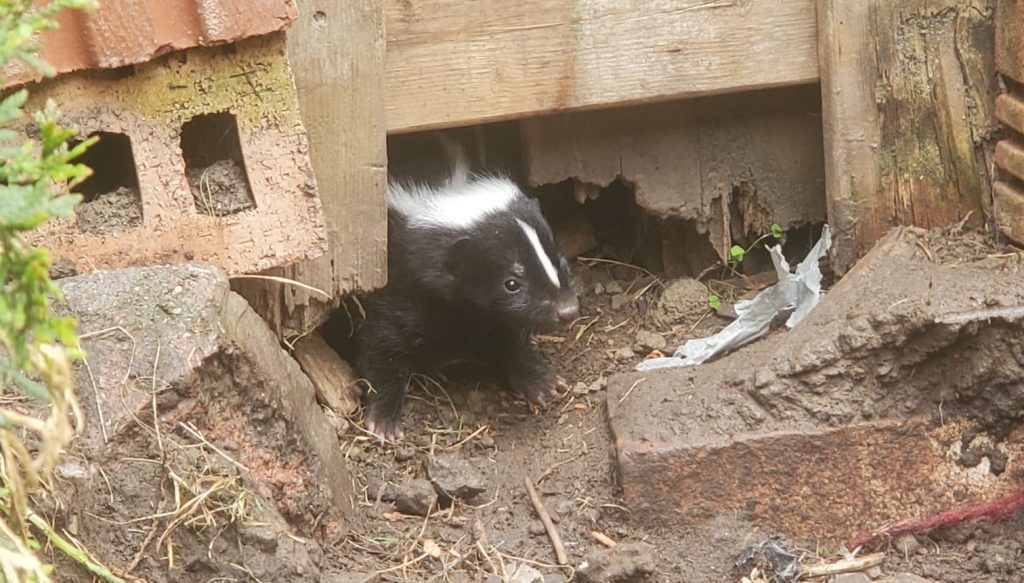Fall is a pivotal season for many animal species. With winter looming, animals are constantly on the move, creating dens, hoarding food, and generally preparing for the long winter ahead. Skunks are no different.
As the weather cools off, these malodorous mammals start eating as much as possible in an effort to increase body fat, which allows them to stay warm during winter dormancy. Besides gorging themselves, also on a skunk’s checklist is finding a suitable winter den—which hopefully isn’t anywhere near your house.
Do Skunks Hibernate?
Skunks do not hibernate.
They do enter a state of reduced metabolic activity similar to hibernation—called torpor—in times of extreme cold. Unlike true hibernation, skunks in torpor wake up from time to time. Skunks enter torpor from the safety of their dens.
Once the cold starts to set in, a skunk will prepare its den by blocking off the entrance with leaves and grass to keep cold air out.
It isn’t uncommon for several skunks to burrow together, since cohabitating skunks benefit from something called social thermoregulation, where they use each other to stay warm. This added warmth is so appealing that even male skunks—who normally do not tolerate the presence of other males—will temporarily bunk up together when it’s cold out
Where Do Skunks Burrow?

Female skunks select den sites that are quiet and dark for the sense of security these sites afford their young. Skunks that live in residential areas are known to find comfort underneath porches and decks. A burrow entrance is between 3-5 inches so skunks can squeeze through tiny holes.
While they can dig their burrows, they usually prefer to move into spaces that belong to someone else. For example, skunks that live away from residential areas will often commandeer burrows dug and deserted by other animals, like woodchucks or foxes.
What Are the Signs a Skunk is Under Your House?
The four most obvious signs a skunk is under your house are smell, holes, and tracks.
- Skunks are infamous for the musky, foul odor they emit. If you notice the persistent odor emanating from underneath your house, it’s likely that a skunk has created a den.
- There are two types of skunk holes. Skunks are also known to leave small, shallow, and perfectly circular holes in the ground to locate and feed on insects. Skunks will also dig burrows. The entrance to a skunk burrow is between 3-5 inches.
- Skunks can also leave tracks, showing five toes and long claw marks. They are often thought to look like miniature bear tracks.
- You also might be able to hear skunk sounds under your house. These can include squeals, hisses, whimpers, or grumping sounds.



